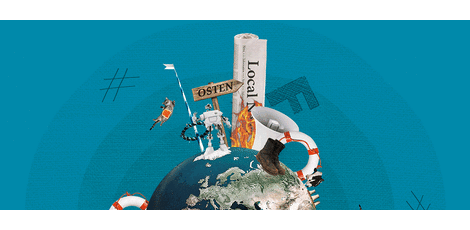Your podcast discovery platform
Curious minds select the most fascinating podcasts from around the world. Discover hand-piqd audio recommendations on your favorite topics.

piqer for: Global finds
Ciku Kimeria is a Kenyan author "Of goats and poisoned oranges" - (https://www.amazon.com/goats-poisoned-oranges-Ciku-Kimeria-ebook/dp/B00HBBWPI6), development consultant, adventurer and travel blogger (www.thekenyanexplorer.com). She writes both fiction and non-fiction focusing on African stories that need telling. She has worked on diverse pieces for various international and local publications including Quartz, Ozy, The East African etc. She has travelled to 45 countries – 16 of them in Africa. 153 countries to go and 63 territories!
"Of goats and poisoned oranges" has been extremely well received in Kenya and beyond. It tells the story of a Kenyan middle aged power couple and their complicated marriage. The novel explores issues of greed, revenge, betrayal and murder. It runs from the 1960s to 2013. It has been described as “Wicked, funny, poignant, wacky, human, a big ball of fun and danger”, “A unique and captivating book”, “Fun and intriguing”, “Impossible to put down once you start reading.”
She recently moved to Dakar, Senegal from Kenya to work on her second novel. She also works at as the Africa Communication Manager at a leading global strategy consulting firm.
She holds a B.S. in Management Science from MIT with minors in Urban Planning and International development studies.
What's in a name? The complex relationship between Africa(ns) and colonial names
In Kikuyu culture (my tribe), naming conventions are extremely important. The first born son is named after the paternal grandfather, second born son after the maternal grandfather, first born daughter after the paternal mother etc. For us, naming is a form of rebirth and prospective grandparents eagerly wait to reborn in the form of their grandchildren. There were always a few exceptions - one was not to name anyone after murderers, drunkards, those who practiced dark magic or those who suffered from an African catch-all malady "Madness."
We speculate about why some African countries have retained the names given by colonizers, and wonder if name changes have had any effect on the progress of self-christened countries, or on their citizens’ perspectives of their identities. We scrutinize relics of colonization that can still be found in our everyday lives such as the horsehair wigs and robes worn by lawyers in some former British colonies. We also examine the relationship between former colonies and their colonizers as it relates to superficial faux-solidarity programs such as the commonwealth, and the harsh reality of current policies (i.e. immigration policies and the windrush scandal).
I've written before about why I chose to drop my colonial name. I love what Somali poet, Warsan Shire, says about names, "Give your daughters difficult names. Give your daughters names that command the full use of tongue. My name makes you want to tell me the truth. My name doesn’t allow me to trust anyone that cannot pronounce it right." I slow clap whenever I listen to South African poet Vuyelwa Maluleke's poem "Big School" and she says, "Every lump is your name is my demand on the world for you." A name is not just a name. It's the first thing we learn about someone when we meet them - that has to mean something.
Hosted by four Nigerian women, Not Your African Cliché is a podcast that highlights the complex stories of Africans on the continent and in the diaspora.
